- Details
- Written by: Brittany Chaffee
- Category: Learn
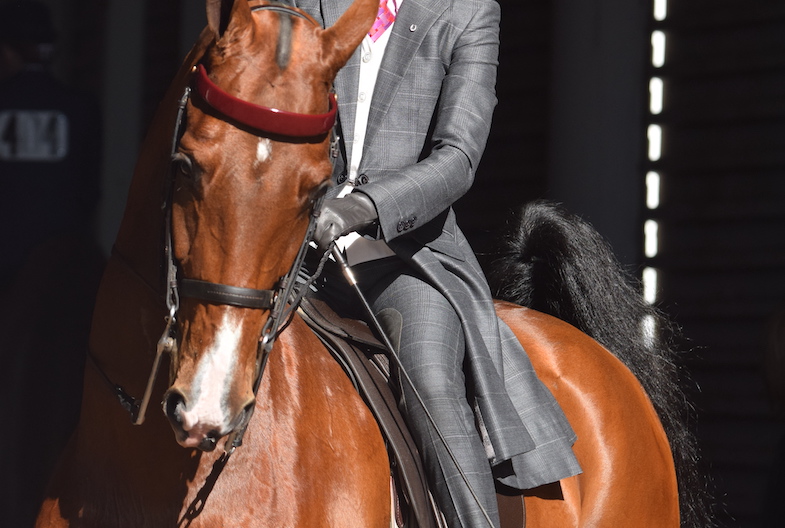 Lateral flexion is the start of a beautiful circle. Photo by Allie LayosWhen it comes to horseback riding, it’s easy to disregard geometry. But, beyond the beauty of forward motion, the expertise of equitation and the exquisite engine that is the saddle horse, the art of mathematics shapes what we create between the ears.
Lateral flexion is the start of a beautiful circle. Photo by Allie LayosWhen it comes to horseback riding, it’s easy to disregard geometry. But, beyond the beauty of forward motion, the expertise of equitation and the exquisite engine that is the saddle horse, the art of mathematics shapes what we create between the ears.
And by “shapes” we mean that quite literally.
The circle may be the most profound shape of riding. The round chord, where all curved lines are equal distances from the center point, is so much more than a shape. It’s a test of contact, an indication of awareness, and an understanding of consistent rhythm. Circles build confidence and strength. Horse and rider must be subtle, stride by stride, with cues and adjustments.
The circle defines patience, precision and bend. On horseback, the circle becomes art.
- Details
- Written by: Mary Allyce
- Category: Learn
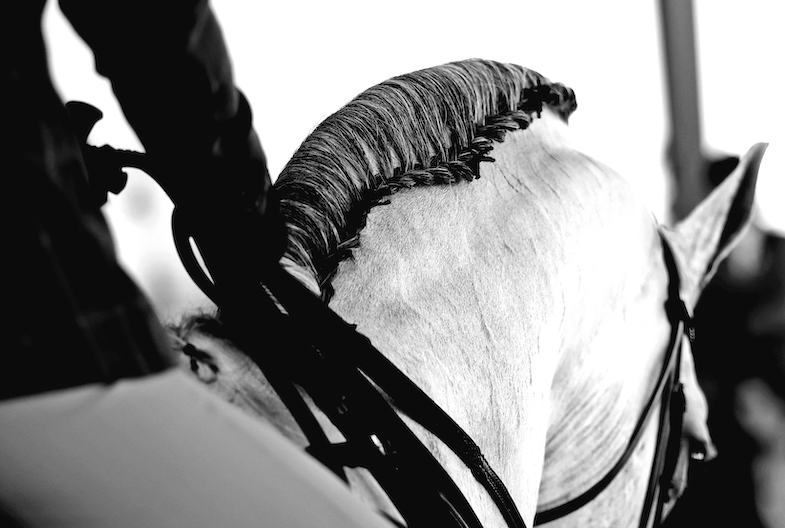 Photo by Julia Shelburne-HittiIt’s time to sell your horse or buy one, and you have the equivalent of sticker shock. If you’re selling, quoted prices sound low and if you’re buying, they sound high. The business of buying and selling horses is not easily relatable to other businesses, and it can be a steep learning curve for those new to the marketplace. The majority of Saddlebred owners buy and sell through professional trainers who act as agents in the transactions and receive commissions, somewhat like real estate, but not exactly. It’s often confusing for newbies, and frustrating even for veteran owners.
Photo by Julia Shelburne-HittiIt’s time to sell your horse or buy one, and you have the equivalent of sticker shock. If you’re selling, quoted prices sound low and if you’re buying, they sound high. The business of buying and selling horses is not easily relatable to other businesses, and it can be a steep learning curve for those new to the marketplace. The majority of Saddlebred owners buy and sell through professional trainers who act as agents in the transactions and receive commissions, somewhat like real estate, but not exactly. It’s often confusing for newbies, and frustrating even for veteran owners.
Google says the term “horse trading” has a bad reputation, “. . . due to the difficulties in evaluating the merits of a horse offered for sale.” I won’t argue with Google’s assessment. Pricing horses can be tricky, but does it have to be a bad or difficult experience? Not as long as you seek advice, do your homework, and have realistic expectations.
- Details
- Written by: Allie Layos
- Category: Learn
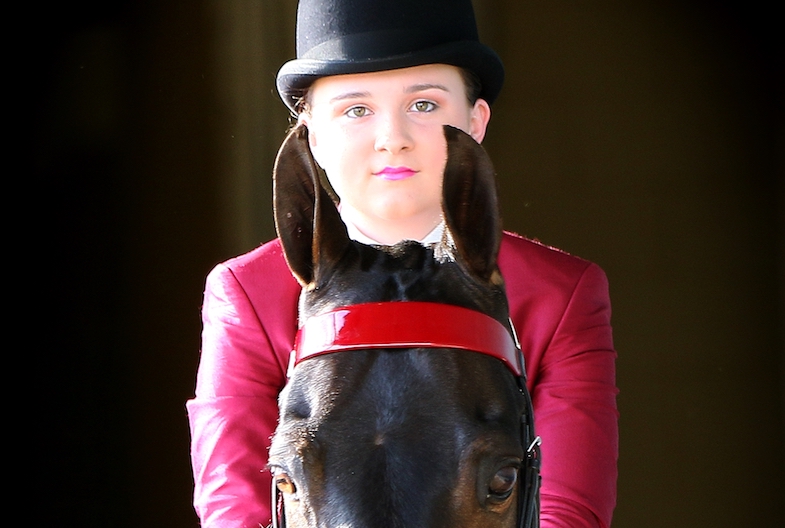 Photo by Julia Shelburne-Hitti“It’s never the horse’s fault.”
Photo by Julia Shelburne-Hitti“It’s never the horse’s fault.”
If you’ve never heard this phrase, you’ve probably never taken a riding lesson. It is the mantra of riding instructors everywhere – one of the first concepts new riders are taught as they learn to tack, mount, lead and ride their horses. But is this an over-correction to a world where excuses run rampant, or does it really mean what it says? Even at the highest levels of riding, is it really never the horse’s fault?
To answer this question you have to dig a bit deeper into what the statement means – and what it doesn’t.
- Details
- Written by: Emma Hudelson
- Category: Learn
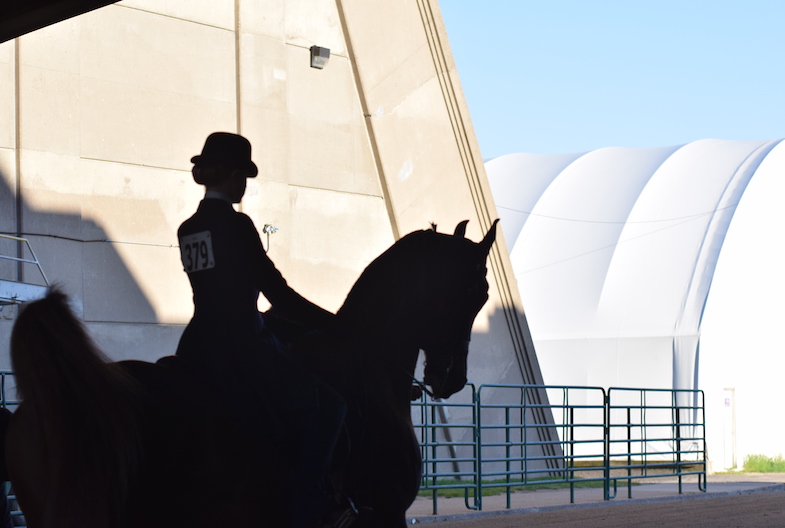 We’ve all seen him. The five-year-old horse who, through no fault of his own, got a late start.
We’ve all seen him. The five-year-old horse who, through no fault of his own, got a late start.
Maybe he was born long after the first foal of the season hit the ground, maybe he had to deal with an injury, or maybe he was just a late bloomer, but for whatever reason, when his junior year came around, he didn’t get the chance to travel the horse show circuit and get the valuable show ring experience most colts need before they’re ready to perform like a finished horse. Enter the Denver Junior class – a class that may become more important than ever in 2021.
- Details
- Written by: Heather Thomas
- Category: Learn
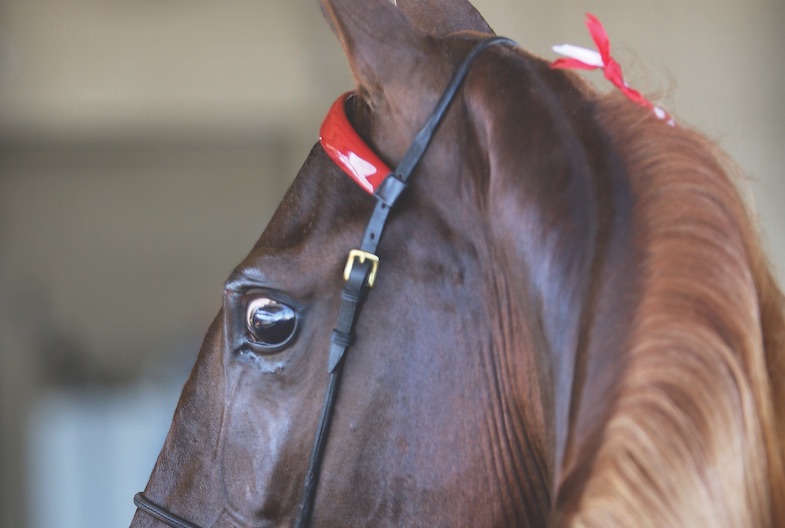 Have you ever known a horse that performed well at home but whose behavior changed negatively at a show? What about a horse that lollygagged through its work sessions at home but suddenly became all show horse when trotting through the in-gate? Horses that perform one way at home or in practice often have a change in behavior and performance when competing at a show, and there may be a variety of reasons for this change.
Have you ever known a horse that performed well at home but whose behavior changed negatively at a show? What about a horse that lollygagged through its work sessions at home but suddenly became all show horse when trotting through the in-gate? Horses that perform one way at home or in practice often have a change in behavior and performance when competing at a show, and there may be a variety of reasons for this change.



